Embarking on the journey to restore missing teeth with dental implants is a significant decision, prompting individuals to explore diverse options, including the allure of Bali as a dental tourism destination. Delving into overseas destinations like Bali, dental implant treatments in such places harbour a few considerations. In this article, we delve into the appeal of Bali dental implants, the considerations of opting for dental tourism versus undergoing the procedure in Australia, factors affecting the cost of dental implants, and essential insights into the dental implant procedure.
Unmasking The Reality Of Bali’s Dental Implants
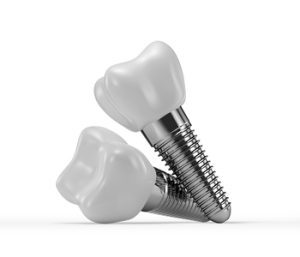
Safety Standards And Regulatory Oversight
In Australia, dental procedures adhere to stringent safety standards and regulatory oversight. However, when opting for dental tourism in Bali, the level of oversight may vary, potentially exposing patients to unfamiliar and less rigorous standards. Ensuring the dental clinic meets international accreditation standards is crucial, but verifying in a foreign country might be challenging.
Language Barriers And Communication Challenges
Effective communication between the patient and the treating dentist is paramount in any dental procedure. In Bali, language barriers pose challenges, potentially leading to misunderstandings about the treatment plan, postoperative care, and other crucial aspects. Miscommunication can compromise the overall success of the dental implant procedure.
Differing Qualifications And Rigorous Training
Australian dentists undergo extensive and rigorous training, ensuring a high standard of expertise. In contrast, Bali dentists may have varied qualifications and training, and it might be challenging to assess the credentials of the treating dentist. The need for qualification standardisation raises concerns about dental professionals’ proficiency in implant procedures.
Invasive Procedure Carries Risks
Dental implant surgery is an invasive procedure that carries inherent risks, such as infection, bleeding, or complications related to anaesthesia. While these risks are present in any dental setting, undergoing such a surgical procedure in an unfamiliar environment may exacerbate concerns, especially if immediate access to follow-up care is not readily available.
Complications And Follow-Up Care
Postoperative complications can arise, requiring prompt attention and follow-up care. Patients who undergo dental implant surgery in Bali may face challenges in accessing timely follow-up care upon returning to Australia. Left unaddressed, complications can impact the success of the implants and overall oral health.
Unknown Clinic Standards And Practices
In Australia, patients can rely on established clinic standards and practices. In Bali, the lack of familiarity with local dental clinics may lead to uncertainty about the quality of facilities and adherence to infection control protocols. Patients may find assessing the clinic’s standards challenging without firsthand knowledge or referrals.
Limited Legal Recourse
In the event of unsatisfactory outcomes or malpractice, pursuing legal recourse in a foreign country can be complex. Patients may face challenges in seeking compensation or resolution for any issues that arise during or after the dental implant procedure in Bali.
Understanding these risks is crucial for individuals who want to undergo dental implants in Bali.
Factors Affecting The Cost Of Dental Implants
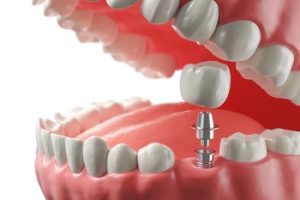
Dental Implant Procedures And Local Dentist Rates
The cost of dental implants can vary based on the specific procedures and the rates set by local dentists. In Australia, dental professionals adhere to standardised fee structures, reflecting the quality of care and expertise. Comparatively, Bali’s dental clinics may offer lower rates, but patients should carefully weigh the potential compromise in quality.
Choice Of Implant Material And Prosthetics
The type of material used for dental implants and the choice of prosthetics play a significant role in cost determination. High-quality materials, such as titanium implants and custom-made prosthetics, often have a higher price tag. Understanding the material options and associated costs allows patients to make informed choices based on their preferences and budget.
Number Of Implants And Full Arch Restoration
The number of implants required for a full arch restoration influences the cost. Patients with multiple missing teeth or those opting for a full-mouth restoration may incur higher expenses due to the increased number of implants and prosthetics. A detailed treatment plan from the treating dentist outlines the specific requirements for each case.
Location And Clinic Reputation
Geographical location plays a role in the cost variation of dental implants. While Australian clinics adhere to consistent pricing structures, Bali’s dental clinics may offer more competitive rates. However, the reputation and expertise of the dental clinic should not be overlooked, as experienced professionals often charge higher fees for their services.
What To Expect During The Dental Implant Procedure In Australia
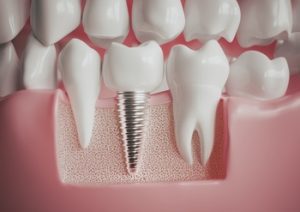
Initial Consultation And Treatment Planning
The journey begins with an initial consultation with the implant dentist. This phase thoroughly examines oral health, assesses missing or damaged teeth, and discusses the patient’s goals. The dentist creates a personalised treatment plan that addresses individual needs through advanced imaging technologies, including the number of implants required and any additional treatments.
Surgical Placement Of Dental Implants
The surgical phase involves the precise placement of dental implants into the jawbone. This procedure is conducted under local anaesthesia, ensuring the patient’s comfort. The number of implants placed depends on the treatment plan developed during the initial consultation. The surgical placement is meticulous, emphasising precision for the implants’ long-term success.
Healing And Osseointegration
Following implant placement, a healing period is essential for osseointegration, a natural process where the implants fuse with the jawbone. This integration provides a stable foundation for the prosthetics and is crucial for the long-term success of the dental implant. Patients may be provided with temporary prosthetics during this healing phase.
Abutment Placement And Prosthetic Attachment
Once the healing process is complete, abutments are attached to the implants. These abutments serve as connectors between the implants and the final prosthetics. Impressions are taken to create custom-made prosthetics that closely match the natural teeth. The final prosthetics are securely attached to the abutments, completing the restoration.
Post-Procedure Follow-Up And Care
After the implant procedure, postoperative care is crucial for ensuring the success of the implants. The dentist provides detailed instructions on oral hygiene practices, dietary considerations, and scheduled follow-up appointments. Regular dental check-ups become part of the ongoing care plan to monitor the health of the implants and overall oral well-being.
Additional Treatments That Might Add To Your Cost
While the core dental implant procedure forms the foundation of a full-mouth restoration, additional treatments may be recommended based on individual oral health needs. These treatments can impact the overall cost of the dental treatment plan.
Bone Grafting
In cases where the jawbone requires reinforcement, bone grafting may be necessary before implant placement. This additional procedure contributes to the overall cost but is essential for ensuring the stability and success of the implants.
Sinus Lifting
For individuals with specific anatomical considerations, such as a low sinus floor, sinus lifting may be recommended. This procedure creates additional space for implant placement in the upper jaw. Sinus lifting contributes to the overall cost and is determined during the initial treatment planning phase.
Understanding the detailed process and potential additional treatments ensures individuals are well-informed as they embark on the dental implant journey.
Frequently Asked Questions
 What is the typical dental implant cost in Australia?
What is the typical dental implant cost in Australia?
The cost of dental implants in Australia can vary based on several factors, including the number of implants needed, the type of implants chosen (i.e., traditional or mini dental implants), and the geographical location of the dental clinic. The cost may involve a few thousand dollars per tooth. Consult your dentist for a personalised and accurate cost estimate tailored to your needs.
How long does the dental implant procedure take?
The duration of the dental implant procedure varies depending on individual factors, including the complexity of the case and the need for additional treatments. The process may generally span several months, from the initial consultation and treatment planning to the placement of implants, the healing period, and the final prosthetic attachment.
Are there financing options available for dental implants?
Many dental clinics offer financing options to make dental implants more accessible. Discuss payment plans, insurance coverage, and financing options with your dentist to determine the most suitable financial arrangement for your needs.
How do I care for my dental implants?
Proper oral hygiene is crucial for the long-term success of dental implants. Regular brushing, flossing, and professional dental cleanings are essential. Your dentist will provide specific care instructions tailored to your case.
Can dental implants replace only the upper or lower teeth?
Yes, the flexibility of dental implants allows for the replacement of either upper or lower teeth, depending on the individual’s needs. Your dentist will assess your oral health and help you determine the most effective treatment plan.
Is a consultation and treatment planning phase necessary?
Yes, the consultation and treatment planning phase is critical for developing a personalised and effective treatment approach. During this phase, your dentist assesses your oral health, discusses your goals, and creates a detailed plan that ensures the success of the dental implant procedure.
Informed Choices For Lasting Smiles
Embarking on the journey of dental implants is a transformative decision that goes beyond restoring missing teeth—it’s about reclaiming confidence, functionality, and a lasting smile. With the allure of Bali dental implants and the potential risks associated with dental tourism, it becomes evident that informed decision-making is paramount.
The journey to lasting smiles through dental implants is both a destination and a well-guided expedition. For those seeking a permanent, natural-looking restoration of their smiles, the informed choice lies in the safety, expertise, and reliability offered by dental implants in Australia.
Contact Carindale Family Dentist, QLD, to get your replacement teeth alongside highly experienced dentists.
Millennium Centre: (07) 3324 9172
Metropol 2 Centre: (07) 3324 9104
Note: Any surgical or invasive procedure carries risks. Before proceeding, you should seek a second opinion from an appropriately qualified health practitioner.
Sources
“ADA Policies – Elective Overseas Dental Treatment.” Australian Dental Association, ada.org.au/policy-statement-2-2-6-elective-overseas-dental-treatment.
Adams, Lina. “Beware of Language Barriers, Dental Tourists Warned – Dentistry.” Dentistry.co.uk, 30 Aug. 2023, dentistry.co.uk/2023/08/24/beware-of-language-barriers-dental-tourists-warned.
Bhatiya, Rehan. “Understanding the Factors Influencing Dental Implants Cost.” Medium, 25 Aug. 2023, medium.com/@rehanbhatiya/understanding-the-factors-influencing-dental-implants-cost-79de6517a8da.
Colgate. Bone Graft for Dental Implants: Understanding the Possibility. 18 Nov. 2020, www.colgate.com/en-gb/oral-health/implants/bone-graft-for-dental-implants-understanding-the-possibility-0213.
Dental Implant Surgery – Mayo Clinic. 29 Jan. 2019, www.mayoclinic.org/tests-procedures/dental-implant-surgery/about/pac-20384622.
Dental Tribune International. “DT News – International – Risks of Dental Tourism …” Dental Tribune International, 13 July 2017, www.dental-tribune.com/news/risks-of-dental-tourism-highlighted-by-ada.
“How to Clean Your Dental Implants.” Oral-B, oralb.com/en-us/oral-health/life-stages-adults/how-to-clean-your-dental-implants.
Lamb, Sandra. “When Dental Implants Go Wrong.” AARP, 13 Nov. 2020, www.aarp.org/health/conditions-treatments/info-2020/dental-implants-danger.html.
Sinus Lifts for Implant Treatment | Bupa Dental Care. www.bupa.co.uk/dental/dental-care/treatments/dental-implants/supporting-treatments/sinus-lifts.
Zirconia or Titanium Dental Implants | Materials, Properties and Strengths of Tooth Implants. www.click4teeth.com/feature-articles/what-materials-dental-implants.

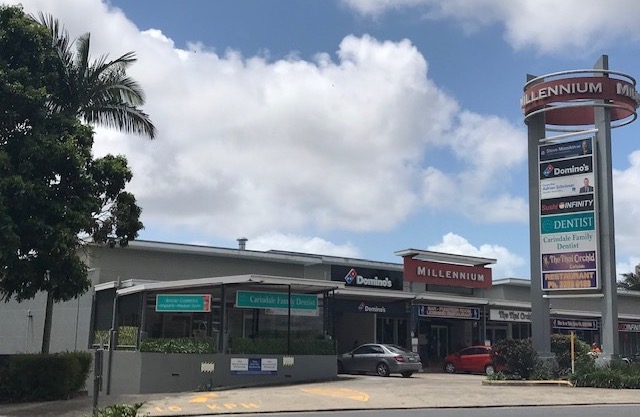


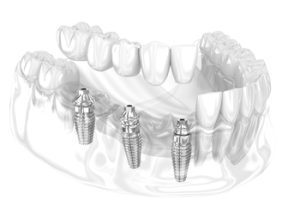 What is the typical dental implant cost in Australia?
What is the typical dental implant cost in Australia?